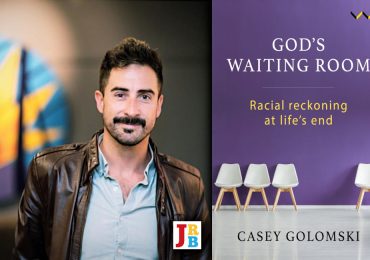The shortlists for the 2019 Sunday Times Literary Awards have been revealed!
The duo of awards—the Alan Paton Award for Non-fiction and the Barry Ronge Fiction Prize—celebrate ‘the best of South African non-fiction and fiction’ from the previous year. Each winner receives R100,000.
Last year’s Alan Paton Award winner was Bongani Ngqulunga, for The Man Who Founded the ANC: A Biography of Pixley ka Isaka Seme, while Harry Kalmer won last year’s Barry Ronge Fiction Prize for his novel A Thousand Tales of Johannesburg.
The 2019 Alan Paton Award shortlist
- Heist! South Africa’s Cash-in-Transit Epidemic Uncovered by Anneliese Burgess (Penguin Random House)
- These Bones Will Rise Again by Panashe Chigumadzi (Jacana Media)
- Breaking a Rainbow, Building a Nation: The Politics Behind the #MustFall Movements by Rekgotsofetse Chikane (Picador Africa)
- Everyone is Present: Essays on Photography, Family and Memory by Terry Kurgan (Fourthwall Books)
- Imprisoned: The Experience of a Prisoner Under Apartheid by Sylvia Neame (Jacana Media)
The Alan Paton Award for Non-fiction criteria stipulate that the prize should be bestowed on a book that presents ‘the illumination of truthfulness, especially those forms of it that are new, delicate, unfashionable and fly in the face of power’, and that demonstrates ‘compassion, elegance of writing, and intellectual and moral integrity’.
The shortlist of five books was selected by judges Sylvia Vollenhoven (chair), Paddi Clay and Tinyiko Maluleke.
Vollenhoven said, in the Sunday Times announcement:
A nation is like a large, extended family and our collective health is dependent on those among us who are the guardians of our precious moments. The Alan Paton 2019 shortlist is a collection of powerful moments recorded with rigour and beauty.
Three of the writers delve into intensely personal spaces. These range from the horror of the apartheid prisons to a search for the meaning of the great spiritual warrior Mbuya Nehanda, that takes us into a Zimbabwe outsiders hardly know. Then there is a moving family portrait, strikingly universal in its approach that ends with the heart-rending realisation that what has been lost cannot be regained.
All but one of the five books on the shortlist have been written by women, including an innovative journalistic analysis of the cash-in-transit heists, a crime epidemic. The author focuses on the gist of the problem and also how it can be addressed.
The only male author on the list debunks the Rainbow Nation myth but says the question is how to shift the #MustFall movement out of the ivory towers and into spaces representative of the majority of black people.
This is powerful writing by these guardians of our historic moments and storytelling that lingers.
The 2019 Barry Ronge Fiction Prize shortlist
- The Boy Who Could Keep a Swan in His Head by John Hunt (Umuzi)
- The Ones with Purpose by Nozizwe Cynthia Jele (Kwela Books)
- The Theory of Flight by Siphiwe Gloria Ndlovu (Penguin Random House)
- Under Glass by Claire Robertson (Umuzi)
- Theo & Flora by Mark Winkler (Umuzi)
The Barry Ronge Prize criteria stipulate that the winning novel should be one of ‘rare imagination and style … a tale so compelling as to become an enduring landmark of contemporary fiction’.
The shortlist of five books was selected by judges Ken Barris (chair), Nancy Richards and Wamuwi Mbao.
Barris said, in the Sunday Times announcement:
The five books shortlisted for the 2019 Barry Ronge Prize are not only extraordinarily good, they show diverse strengths. The Boy Who Could Keep a Swan in His Head by John Hunt brims over with quiet intelligence and comic timing. It manages to be deeply moving as well.
Cynthia Nozizwe Jele’s The Ones with Purpose is a fine exploration of love, death and family life, a beautiful and sometimes harrowing tale.
Siphiwe Gloria Ndlovu’s debut, The Theory of Flight, is an ingeniously resolved magical realist piece, layered and marked by elegant ironies.Claire Robertson’s Under Glass is a virtuoso work, intelligently and immaculately observed, with the strengths of a genuine classic. And Mark Winkler’s Theo & Flora is a wickedly funny story in the present about a desperate love story in the past, containing much well-aimed mockery of writers as a species.





